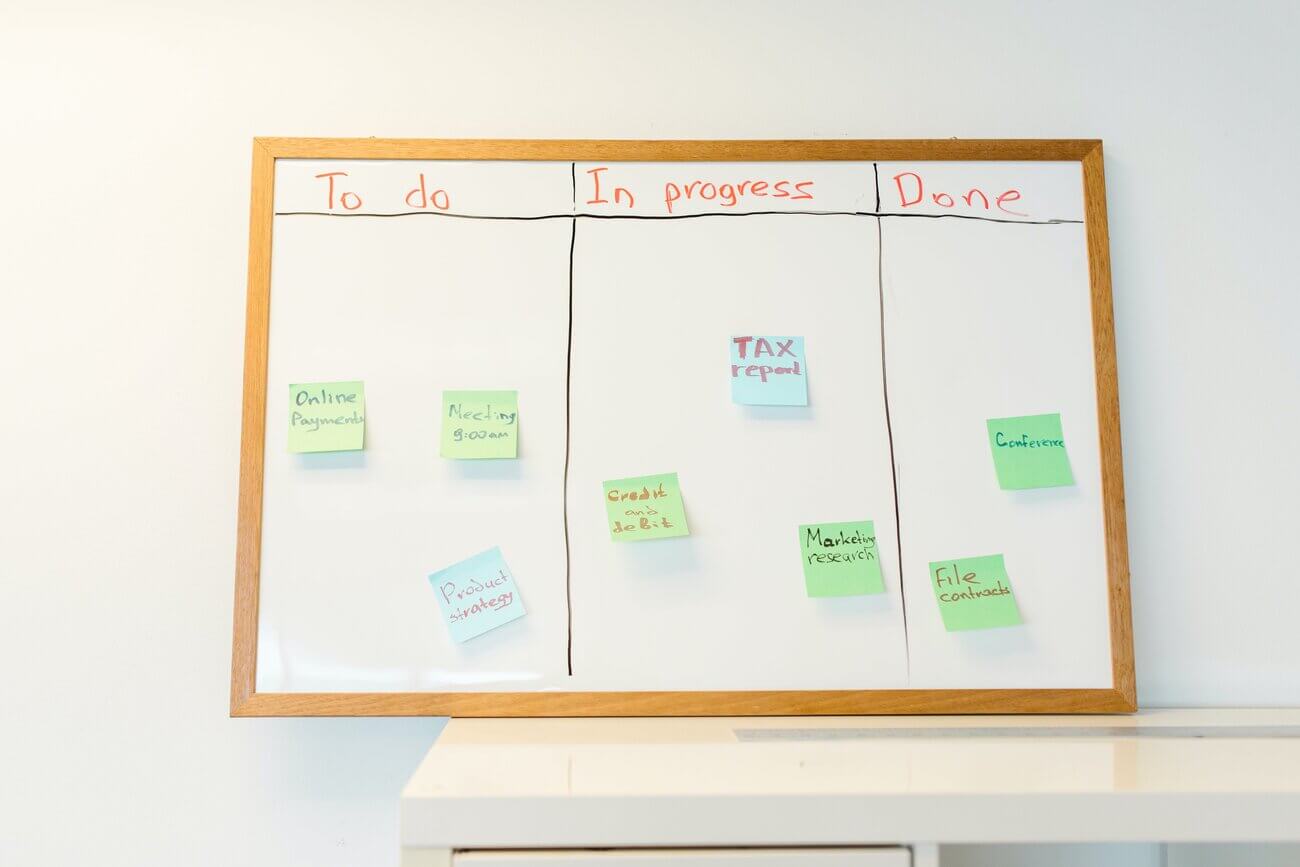Career Development

An Online Learning Guide For New Students: Getting Started

03 November 2023 - 3 min read
If you’ve have clicked on this blog, then it’s likely that you have enrolled – or are planning to enrol – on your first online course and you may be feeling slightly apprehensive about getting started. However, you needn’t worry as our online learning guide for new students will explain everything you need to know about gaining a new qualification, 100% online.

What can I expect from online learning?
Online learning is learning that takes place online, whether that be through platforms such as Microsoft Teams, Zoom or an learning providers’ virtual learning platform (VLE).
Unlike in-person learning, online learning provides you with all course content and resources entirely online. You'll also submit essays or assignments online and upon completion, receive a certificate. Keep in mind, however, that many online learning qualifications require you to take in-person exams.
What are the benefits of online learning?
There are several benefits as to why someone would choose to learn online, however, some of the most prominent include:
- The added flexibility: depending on your selected learning provider, you are typical given a maximum, rather than a minimum, timeframe to finish your qualification. This allows you to tailor your learning speed to align with your lifestyle.
- Reduced costs: many online learning providers include the course materials within the cost of the qualification, this means there’s no excess or hidden costs for the learner. Additionally, costs can also be saved from a lack of commute and day-to-day spending.
- Opportunities to network: online learning offers learners the chance to break down location barriers and network with like-minded individuals around the globe through online seminars, forums and group chats.
- Learning at your own pace: what some people deem as the most beneficial part of online learning, it allows for individuals with busy lifestyles, full time jobs and parents, to gain qualifications and achieve their career goals.

How to succeed in online learning
Online learning can seem daunting at the beginning, however, as you are now aware of what to expect as well as some of the key benefits, you’re in a great position to get started.
To help you on your learning journey, we’re now going to provide you with a few tips to ensure you’re starting off on the right foot.
1) Build your routine
Nailing that routine is crucial to succeeding with your online learning plans. You’re in charge of your own studies and need to find a schedule that works for you. A few things to take into consideration include:
Prioritising your tasks
What might seem self-explanatory, this really helps to reduce feelings of overwhelm and will allow you to identify tasks that need to be completed immediately, next week or later.
We recommend first listing all your tasks and separating them into two columns, urgent and important. Once your tasks are separated, estimate how long each task will take you and then reorder based on these timings. Work through the urgent task first, completing what is most timely first and so on. Once completed, move onto important and do the same.
Using a calendar or time management system
Utilise your calendar and write down when you’re going to study. Not only will this help with accountability, but it will increase levels of satisfaction when you can tick things off as you go.
Additionally, time management systems such as the 1-3-5 rule, or the 52 /17 rule have great success rates and there’s plenty to choose from.
Planning your breaks
This means that you always have something to look forward to, which will help you stay motivated through the nitty gritty tasks. To effectively unwind on a study break, we recommend:
- Listening to music
- Stretching
- Going for a 15-minute brisk walk
- Refuelling your body with a meal and plenty of water
- Phoning a friend to catch-up (although do put a timer on this so you don’t get distracted)
- Practising mediation

2) Understand your learning style
Are you an auditory, visual, kinaesthetic, or reading/writing learner? Depending on your preferences, you can then create study materials that best suit you and how you learn.
- Visual: absorbs information that comes in the form of graphics, such as charts, tables or mind-maps
- Kinaesthetic: prefers learning in an active or physical way. This could be through role playing, presentations and using materials such as flashcards to act out stories and situations
- Auditory: These types of learners benefit from listening to someone recite notes and scripts
- Read/write: those who thrive when writing notes, re-reading notes, making lists, and keeping glossaries are described as those who prefer read/write learning
If you are unsure of which learning style best suits you, why not try an online quiz.

3) Contribute and collaborate
It can be easy to isolate yourself while learning online, as essentially, you’re not meeting your tutors or other learners in-person and that can sometimes feel lonely.
To counteract this, try and treat your online learning like in-person learning, where applicable, creating two-way dialogues and opportunities for conversation. A few tips include:
- Create or join any group chats available between you and other learners
- Don’t be afraid to ask questions, as often others will also have the same ones
- Read online forums and engage in conversations
- Contribute to online learning communities
- Utilise your Virtual Learning Platform

4) Find ways to stay motivated
It can be difficult to stay motivated throughout your studies, especially when life gets busy. However, we often forget to enjoy the process of learning, so finding ways to do this is extremely beneficial. We suggest:
Writing down why you originally chose to study: cementing two or three reasons as to why you chose to study in the first place will help cement your thoughts. Reading them to yourself on the harder days will give you back perspective and remind you why you started.
Investing in self-care: taking breaks and looking after yourself is vital to staying motivated, it will increase your energy levels and boost endorphins. So, don’t skip you time, it’s important!
Leaning on family and friends: during those tougher days, you might need a bit of extra help! Your family and friends will want to be there for you, so involve them in your studies and take them on the journey with you.

5) Establish a productive learning environment
We often go into our studies without thinking where we are going to study. That said, a clean, calm and organised space is crucial to a successful study session. This means that when it’s time to get your head down and focus, you’ll be able to.
Things to consider are:
- Lighting: studying in a well-lit space will reduce eye strain and the possibility of headaches.
- Removing directions: studying with the TV off and your phone in another room will help you focus.
- Making sure you’re comfortable: this is important if you are studying for longer periods of time.
Additionally, remember to stay hydrated and eat intuitively while studying. Fruit, nuts, dark chocolate, berries and Greek yoghurt are all said to be high in protein, antioxidants and are naturally sweet, making them great brain foods.
Do some research and grab some snacks that you enjoy.

6) Set short-term and long-term goals
Setting yourself goals and objectives will give you something to work towards and make your study goals feel more achievable. Short term goals are those that are to be achieved sooner rather than later, whereas long-term goals may take you years and can include your overall life and career.
An example of some short-term goals with online learning include:
- Scheduling your assignments
- Making essay plans
- Organising your workspace
- Writing study notes
An example of some long-term goals include:
- Developing specific skills that will make your job easier in the long run
- Starting work on a freelance project to build a portfolio
- Completing your studies with a specific grade
- Growing your professional network through networking
If you’re a new student and have just embarked on your online learning journey, we hope you find this guide useful and are excited to get started. Good luck!
Enrol on an 100% online course and kickstart your career today.
Download Your Free CIPD Course Guide
Get information on our CIPD courses
Share this post
Your Guide to Transferrable Skills for a Career Change
If you're ready for a change and don't know where to start, then this guide to transferrable skills for a career change is for you. Exploring how your skills can be used across multiple industries from technology to property, find out more here!
How to Study as a Full-Time Parent
Studying as a full-time parent can be a challenge, but with the right strategies behind you it can easily be managed. Here's our guide to how to study as a full-time parent.
Why Online Learning is the Future of Education
Online learning has come leaps and bounds these last few years, with everyone from school kids, to career switchers taking full advantage of gaining new qualifications virtually. In this blog we highlight why we think online learning is now the future of education.















